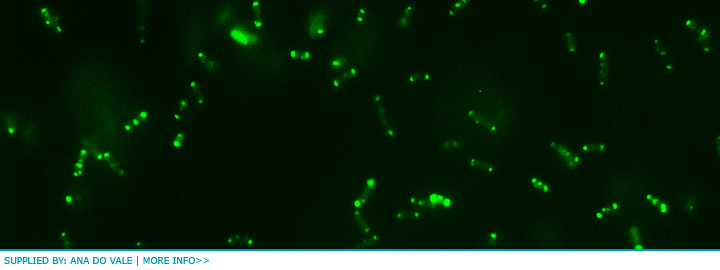

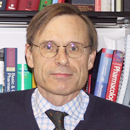 |
Klaus Aktories Klaus Aktories studied Pharmacy and Medicine (MD) at the University of Frankfurt. He obtained his Ph.D. in Pharmacology at the University of Heidelberg and received the Habilitation for Pharmacology and Toxicology in 1983. |
|
He was Associate Professor in Pharmacology at the University of Gießen (1985-1989) and Essen (1989-1991). From 1991-1994 he was Full Professor in Pharmacology at the University of the Saarland. Since 1995, he is Full Professor and Chair (Department 1) in Pharmacology and Toxicology at the University of Freiburg, Germany. He is member of the German National Academy of Sciences - Leopoldina (2003), fellow of the American Academy of Microbiology (2008) and Member of EMBO (2008). |
||
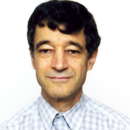 |
Michel R. Popoff Michel R. Popoff, D.V.M., Ph.D., is the Head of the Anaerobic Bacteria and Toxins Unit and the Director of the National Reference Center for Anaerobic Bacteria and Botulism at Pasteur Institute, Paris, France. His laboratory is focused on Clostridium toxins through genetic and biological activity analysis and has investigated the regulation of toxin synthesis in Clostridium botulinum and Clostridium tetani. |
|
| In the recent years, we have analyzed the molecular mechanism of the actin depolymerizing C. sordellii lethal toxin and clostridial binary toxins, the pore-forming C. perfringens epsilon toxin and the related C. septicum alpha toxin , as well as the passage of botulinum neurotoxin through the intestinal barrier. |
||
 |
John Collier Collier spent his career studying the structures and modes of action of bacterial toxins, mainly diphtheria toxin and anthrax toxin. Following doctoral studies (1959-64) and two years of postdocoral research. |
|
He spent 18 years on the faculty at the University of California, Los Angeles (1966-84) and 29 years at the Harvard Medical School (1984-2013), where he is now Professor Emeritus. |
||
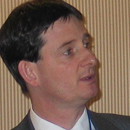 |
Mike William Peck SHORT BIOGRAPHY: |
|
He spends much time applying the findings of his research to deliver social and economic impact (for example, he works with industry and regulators to deliver safe minimally heated refrigerated foods). He is also Director of the Food Safety Centre, and Deputy Leader of the Gut Health and Food Safety Programme. He holds Professorships at the University of Nottingham and the University of East Anglia. He has published more than 150 refereed publications and book chapters. |
||
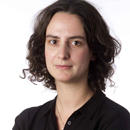 |
Ana EulÁlio Ana Eulalio obtained a PhD in Biochemistry from the University of Coimbra (Portugal) in 2006. She then worked as post-doctoral researcher at the Max-Planck Institute for Development Biology (Tübingen, Germany), Max-Planck Institute for Infection Biology (Berlin, Germany) and at the International Centre for Genetic Engineering and Biotechnology (Trieste, Italy), focusing on various aspects of microRNA mechanisms and function. |
|
| Since 2012, she is Group Leader at the Institute for Molecular Infection Biology (IMIB) of the University of Würzburg (Germany). Her current research aims at understanding the impact of bacterial infections on host cell RNA metabolism, with a special interest in the microRNA pathway, as well as the reciprocal role of host RNA metabolism on the life cycle of bacterial pathogens. This is achieved through the application of unbiased, genome-wide systems biology approaches, such as deep-sequencing and high-throughput functional screenings, followed by in-depth characterization of interesting candidates. |
||
 |
Nancy A. Woychik Nancy Woychik performed her postdoctoral work at the Whitehead Institute-Massachusetts Institute of Technology (MIT). She started her independent career in 1991 at the former Roche Institute of Molecular Biology, an academic institute created and supported by Hoffmann La-Roche. She then moved to her current faculty position at Rutgers University in 1996, where she is now a Full Professor. |
|
For the last 10 years her laboratory has focused on identification of the molecular mechanisms used by toxin components of bacterial toxin-antitoxin systems to regulate cell growth. Her most recent studies explore how the abundance of toxin-antitoxin systems in the Mycobacterium tuberculosis genome might contribute to the ability of this pathogen to endure stresses, slow replication or enter the dormant state characteristic of latent tuberculosis infection. |
||
 |
Gabriel Waksman SHORT BIOGRAPHY: |
|
In 2000, he became the Alumni Endowed Professor of Biochemistry and Molecular Biophysics, and in 2002 was appointed the first Roy and Diana Vagelos Professor of Biochemistry and Molecular Biophysics. In 2003, he moved to London (UK) to take up the Joint Chair of Structural and Molecular Biology at University College London and Birkbeck College London. The same year, he was awarded a Wolfson-Royal Society Merit Award and was appointed the Head of the Institute of Structural and Molecular Biology at UCL/Birkbeck. In 2006, he was appointed to the Courtauld Chair in Biochemistry at UCL, became Head of the Department of Biochemistry and Molecular Biology (now Research Department of Structural and Molecular Biology) at UCL and was appointed Head of the School of Crystallography (now Department of Biological Sciences) at Birkbeck. He was elected to EMBO in 2007, a Fellow of the Academy of Medical Sciences in 2008, a Fellow of the Royal Society in 2012, a member of the German National Academy of Sciences Leopoldina in 2013, and a member of Academia Europaea in 2014. He maintains an active research programme in the Structural and Molecular Biology of Bacterial Secretion Systems funded by a senior investigator award from the Wellcome Trust, an Advanced ERC grant, and a programme grant from MRC. |
||
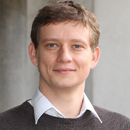 |
Marek Basler From 2007 to 2013, Marek Basler was a post-doctoral researcher with Prof. John Mekalanos at Harvard Medical School in the USA. In 2013, Marek became a group leader at the Biozentrum of University of Basel, Switzerland. He uses structural biology, live cell fluorescence microscopy, biochemistry and genetics to understand the structure and function of the bacterial Type VI Secretion System. |
|
| He further studies molecular mechanisms of cell-cell interactions in various model organisms such as P. aeruginosa, V. cholerae, and E. coli. | ||
 |
Joseph BaRbieri Professor Joe Barbieri conducted post-doctoral research in the USA, and was appointed Assistant Professor of Microbiology and Molecular Genetics at the Medical College of Wisconsin in 1986, where he is currently at the rank of Professor. His research addresses the mechanisms of bacterial toxin action. |
|
Recently, his research has addressed how the clostridium neurotoxins, botulinum toxin and tetanus toxin, uniquely enter neurons. He is also the Director of the Medical Scientist Training Program (MD-PhD) at MCW. He has published more than 150 refereed publications and book chapters. |
||
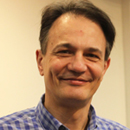 |
Giampietro Schiavo SHORT BIOGRAPHY: |
|
He was then recruited as junior group leader at the Cancer Research UK London Research Institute where he progressed to Senior Research Investigator and Head of the Molecular NeuroPathobiology Laboratory. In 2014 he was appointed Professor of Cellular Neurobiology at the Institute of Neurology, University College London. The goal of Prof. Schiavo’s research is to understand the mechanisms underlying neuronal membrane trafficking in health and disease and how neurons control the uptake and sorting of pathogens and virulence factors. Prof. Schiavo is a member of European Molecular Biology Organisation (EMBO) and a Fellow of the Academy of Medical Science (FMedSci) and Society of Biology (FSB). |
||
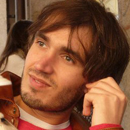 |
Marco Pirazzini SHORT BIOGRAPHY: |
|
He is currently studying the mechanism of entry and action of botulinum neurotoxins inside neurons with a postdoctoral fellowship from the University of Padova. |
||
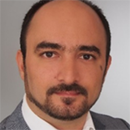 |
Panagiotis Papatheodorou SHORT BIOGRAPHY: |
|
He then worked as a Post-Doc at the Department of Physiological Chemistry of the University of Bochum (Germany). Since 2008 he is a group leader in the laboratory of Klaus Aktories at the Institute for Experimental and Clinical Pharmacology and Toxicology of the University of Freiburg (Germany). In 2014 he received his habilitation in Pharmacology and Toxicology from the Medical Faculty of the University of Freiburg (Germany). |
||
 |
Daniel Humphreys Dr. Daniel Humphreys received his BSc in Microbiology at the University of Liverpool in 2002 and a Masters of Research from the University of Manchester in 2003. He obtained his PhD in 2007 and received postdoctoral training with Wellcome Trust Senior Investigator Prof. Vassilis Koronakis at the University of Cambridge. |
|
In 2014, Dr. Humphreys was awarded a Research Group Leader Fellowship and MRC New Investigator funding, and he is currently a principal investigator at the Department of Pathology, University of Cambridge. Dr. Humphreys’ research focus has been in the study of Type 3 Secretion effector proteins delivered by bacterial pathogens to establish infection. In particular, he has used biochemical reconstitution techniques to establish how Salmonella effector proteins hijack Rho and Arf GTPases to subvert the host cell actin cytoskeleton. He is now expanding his interests to pathogen interactions with Rab GTPases and their role in controlling intracellular infections. |
||
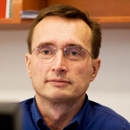 |
Peter Sebo Professor Peter Sebo trained as postdoc at Institut Pasteur in Paris and was appointed as groupleader at the Institute of Microbiology of the ASCR in Prague in 1995. His research interests focus on molecular mechanisms of bacterial virulence and bacterial protein toxin action, with particular emphasis on Bordetella pertussis virulence and the mechanism of immunosubversive action of the adenylate cyclase toxin (ACT). |
|
His work contributed to the development of the AC toxoid into an antigen delivery tool for use in immunotherapeutic cancer vaccines. He holds a professorship at the University of Chemical Ttechnology in Prague and published over 100 peer-reviewed papers and book chapters. |
||
 |
Gilles PREVOST SHORT BIOGRAPHY: |
|
Author of 79 peer-reviewed Pubmed references, H factor = 39, G factor = 61, training > 10 achieved PhD. Principal author of a patent “PCT/IB2012/050909 Immunoabsorbed anti-staphylococcal enterotoxins polyclonal antibodies, preparation and uses thereof. G PRÉVOST, D KELLER, K MASOUD, C BARASINO”. Since January 2013, director of the EA7290 “Virulence bactérienne précoce” that is composed of two research projects at the University of Strasbourg, and responsible for an animal facility agreed for infectious experimentation. Responsible for 10 years of a Master degree in physiopathology. Member of the administration council of the Société Française d’Etude des Toxines. |
||
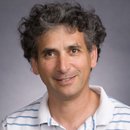 |
Ethan Bier Professor Ethan Bier was a graduate student Allan Maxam, studying T-cell receptor gene regulation (Harvard Medical School), and then a postdoctoral fellow with Lily and Yuh Nung Jan (UCSF) analyzing development of the nervous system. He has been an independent investigator at UCSD for nearly 25 years during which time his group used Drosophila to understand how morphogen gradients regulate development during neural induction and adult body patterning. | |
| A major branch of his current research program is focused on using Drosophila to study host-pathogen interactions mediated by toxins and other virulence factors. These studies are carried out in close collaboration with Victor Nizet’s group (UCSD School of Medicine) to validate and extend key results in mammalian systems. | ||
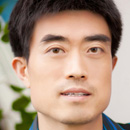 |
Wensheng Wei SHORT BIOGRAPHY: |
|
Dr. Wei received his B.S. degree in Biochemistry from Peking University, and Ph.D. degree in Genetics from Michigan State University. After postdoctoral training and briefly working as a research associate at Stanford University School of Medicine, he joined Peking University School of Life Sciences as a faculty member. A major research focus of Dr. Wei’s laboratory is to study the molecular mechanism of human diseases, especially the host response to microbial pathogenicity. The current focuses of diseases include Clostridium difficile and HCV infections. The combination of forward and reverse genetic means is employed, often in a high-throughput fashion, for the identification of host genes of interest. Efforts have also been put into the development and application of eukaryotic genome editing techniques, such as TALENs and CRISPR/Cas9 systems. |
||
 |
Bernard Poulain SHORT BIOGRAPHY: |
|
| Until 2006, his main contributions have been performed using the Aplysia (a sea mollusc) nervous system. Starting 2006, investigations were performed using rodent brain /cerebellum. With in mind the idea that toxins can be exploited as tools to explore the nervous system functioning, BP has paid a special attention to the mechanisms by which several bacterial protein toxins effect on synaptic transmission and neural cells. |
||
 |
Sandra Sousa Sandra Sousa obtained a PhD in Cellular Microbiology from the Université Paris VII-Denis Diderot in 2004. Her PhD studies supervised by Prof. Pascale Cossart at Institut Pasteur Paris, were focused on the mechanisms of Listeria monocytogenes entry into non-phagocytic cells. In 2005 she joined the Group of Molecular Microbiology at the IBMC (Porto, Portugal) as post-doctoral researcher. |
|
In 2008, she got a research position and developed her own research line within the Group of Molecular Microbiology, IBMC. Her current research aims to characterize the role of different components of the host cytoskeleton in the cellular infection process of bacterial pathogens. |
||
 |
Feng Shao SHORT BIOGRAPHY: |
|
Dr. Shao was trained as a biochemist and obtained his PhD degree with Dr. Jack E. Dixon from University of Michigan in 2003. Prior to returning to China in 2005 to assume an assistant investigator and group leader position at NIBS, he was a Damon Runyon Postdoc Research Fellow at Harvard Medical School. Dr. Shao was promoted to be an associate investigator in 2009 and a full investigator in 2012 at NIBS. Dr. Shao’s research focuses on biochemical mechanism of bacterial infection and host innate immune defense. His laboratory has discovered several novel post-translational modifications used by bacterial effectors to disrupt host immune defenses. He has also identified innate immune sensors for various important bacterial molecules and toxins, including LPS, flagellin, type III secretion system as well as Rho-modifying toxins like TcdB from C. difficile. Dr. Shao has authored nearly 50 research articles in highly-regarded journals, and his work has been recognized by several renowned academic honors including the International Early Career Award from Howard Hughes Medical Institute and the Irving Sigal Young Investigator Award from the Protein Society. Dr. Shao also serves as journal editors for eLife and Cellular Microbiology. |
||
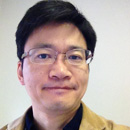 |
Hideaki Tsuge SHORT BIOGRAPHY: |
|
He expanded his research including structural biology and biochemistry in Institute for Health Sciences, Tokushima Bunri University as PI. Since 2010, he has started the structural biology laboratory, Faculty of Life Sciences, Kyoto Sangyo University as professor. Present his main focus are bacterial toxins. As PI and co-investigator with other university, he has made the groundwork of research using protein structural biology to reveal important biological phenomena. Now he is trying to reveal protein-protein interactions between bacterial toxin and human protein, leading to understand infectious disease. |
||
 |
Eric Oswald Professor Eric Oswald is the head of the department of medical bacteriology at the university hospital of Toulouse. He is an expert in cellular microbiology and molecular biology of pathogenic Escherichia coli. In 2011, he joined with his team the Center for Pathophysiology Toulouse-Purpan (CPTP), an INSERM research unit. |
|
Several publications generated by his group represent milestones in the understanding of bacterial pathogenicity especially the discovery of new toxins. Eric Oswald has more than 120 peer-reviewed international publications (H Factor 45). He is currently acting as editor for “Microbes and Infection” “Pathogens and Disease” and as associate editor for “Microbiology and Immunology”. He is the coordinator of the state-of-the-art high-security animal facility ANINFIMIP, an EQUIPEX (EQUIPements d'EXcellence) which is part of the French Funding Programme "Investissements d'Avenir". |
||
 |
Teresa Frisan SHORT BIOGRAPHY: |
|
Her research aims at understanding the mechanisms of bacterial-induced carcinogenesis, with specific focus on bacteria genotoxins, known to cause DNA damage to the host cells. The scientific interests cover several aspects of the biology of this toxin family: from internalization and activation of the host cellular responses to the development of in vivo and ex vivo models to assess the role of this toxin family in acute and chronic infections. |
||
 |
Pamela Schnupf Pamela Schnupf studied at the University of Victoria, British Columbia, Canada for her B.Sc. Honors degree. She obtained her Ph.D. at the University of California, Berkeley, working with Daniel Portnoy on the pore-forming toxin Listeriolysin O from Listeria monocytogenes. She subsequently pursued postdoctoral studies with Philippe Sansonetti at the Pasteur Institute in Paris on Shigella flexneri and, in collaboration with Nadine Cerf-Bensussan at the Imagine Institute, on the commensal gut bacterium segmented filamentous bacteria. |
|
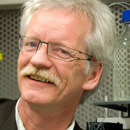 |
Jos A G van Strijp Prof Jos A.G. van Strijp studied Biology in Utrecht, and performed his thesis on viruses complement and neutrophils. After that he moved to Rockefeller University NY (Steinman lab). Returned to Utrecht to start a group on innate immunity and bacteria and spent a year in Boston on Toll like receptors (Golenbock). |
|
The last 15 years the focus has been on Immune evasion by bacteria, especially Staphylococci. His lab discovered over 25 novel immunomodulating molecules, that all modulate the innate immune system, especially neutrophils and complement. It is now clear that this is just the tip of the iceberg. Further he explores fundamental applications in both vaccination in infectious diseases as well as the use of these evasion moleculesas anti-inflammatory therapeutics. Van Strijp is Editor of the many jounals in Microbiology, Infectious diseases and Immunology and a regular referee and panel member on major funding schemes throughout Europe. He has supervised 35 PhD students and 15 Postdocs, his current group is over 25 scientists. Van Strijp has organised and lectured many courses in Infectious diseases as well as in Immunology and is Director of the PhD and Master Programs Infection and Immunity (188 PhD students). Also he is the head of Board of studies of the Graduate school of Life Sciences Utrecht (1800 PhD students). |
||
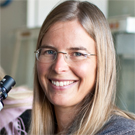 |
Anne Muller Professor Anne Müller received her PhD from the Max Planck Institute for Infection Biology in Berlin. After post-doctoral training in the laboratory of Professor Stanley Falkow at Stanford Univ, California, USA, she was recruited to the Institute of Molecular Cancer Research of the Univ of Zurich in 2006. |
|
| The group of Dr. Müller focuses on two main research areas: the pathogenesis of B-cell lymphoma, in particular of diffuse large B-cell lymphoma, and the biology of Helicobacter pylori infections. The former is investigated using patient samples, cell culture and suitable animal models; we are particularly interested in genome-wide discovery approaches with the goal of uncovering novel tumor suppressors in DLBCL. The other research interest of the lab centers on H. pylori, a gram-negative bacterial colonizer of the human stomach. H. pylori infection causes chronic gastritis and is tightly linked to the development of gastric ulcers and cancer, but remains asymptomatic in the majority of infected individuals. Our lab is interested in understanding disease-associated mechanisms, but also uses experimental infection models to investigate H. pylori persistence and immunomodulatory mechanisms that allow the bacteria to evade and manipulate the host immune response. |
||
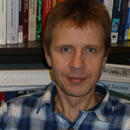 |
Dmitri Kudryashov Dmitri Kudryashov graduated from Russian State Medical University and received his PhD from Russian Academy of Medical Sciences for studying cytoskeletal proteins, particularly the products of Myosin Light Chain Kinase genetic locus. |
|
He then moved to the University of California at Los Angeles to laboratory of Emil Reisler where he studied the actin cytoskeleton and get involved in deciphering mechanisms of actin hijacking by the Actin Crosslinking Domain (ACD) of V.cholerae MARTX toxin.
|
||
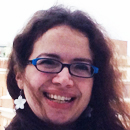 |
Jana Kamanova Jana Kamanova received her M.Sc. in Molecular Biology in 2005 and Ph.D. in Molecular and Cell Biology, Genetics and Virology in 2009 from Charles University in Prague, Czech Republic. Her research interest focuses on the molecular and cellular biology of host pathogen interactions. |
|
| Since 2010 she has been a post-doctoral researcher with Prof. Jorge Galan at Yale University where she is investigating the interplay between Salmonella type III effectors and host proteins during infection. |
||
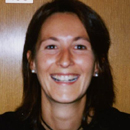 |
Vega Masignani Vega Masignani joined Chiron Vaccines (now Novartis Vaccine and Diagnostics) division in Siena in 1995. She got her PhD in Biotechnology in 2000 and since then she has always worked in the Research Department. She was involved in the Meningococcus B vaccine project since the very beginning and participated in the identification of the protein candidates that are today included in the recently licensed Bexsero vaccine. |
|
From 2005 to 2010 she has worked as Project Leader of the Streptococcus pneumoniae vaccine project and has contributed to the identification and characterization of the pneumococcal pilus, an important factor involved in bacterial pathogenesis. Since 2010, she is Project Leader of the MenB project and is responsible for all the activities that are carried out in Research to further elucidate the role of the Bexsero antigens. |
||
 |
Thomas Binz SHORT BIOGRAPHY: |
|
He became group leader at the Department of Biochemistry at Hanover Medical School in 1997. |
||
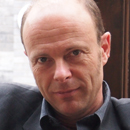 |
Daniel Gillet SHORT BIOGRAPHY: |
|
| He joined the team of André Ménez at the CEA (French Atomic and Alternative Energies Commission) in Saclay in 1990 where he worked on the production of recombinant tracers for diagnostics. He then spent a year in John R Murphy's laboratory at Boston University in 1993 studying the possibility to use diphtheria toxin as a translocator for DNA and proteins. Since then, he has been working on the fundamental aspects of diphtheria toxin and botulinum toxin translocation and biotechnological applications of bacterial, plant and animal toxins. He is now involved in the development of inhibitors of toxins, including ricin and Shigatoxins and an inhibitor of HB-EGF derived from diphtheria toxin for the treatment of HB-EGF related diseases. |
||
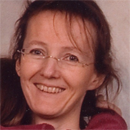 |
Gudula Schmidt Dr Schmidt studied Biology at the Ruhr-University of Bochum, Germany and received her PhD in Biology in 1996. She is group leader in the laboratory of Klaus Aktories at the Institute for Experimental and Clinical Pharmacology and Toxicology of the University of Freiburg (Germany). |
|
Since 2004 she is assistant professor in Pharmacology and Toxicology, Medical Faculty of the University of Freiburg. Her main interest is understanding the action of the Rho-activating bacterial toxins Cytotoxic Necrotizing Factors (CNFs). In her group several toxins are used to understand and to influence Rho-dependent signaling pathways in cancer cells. |
||
 |
Kenneth Bradley SHORT BIOGRAPHY: |
|
He has been a member of the UCLA faculty since 2002 and is currently an Associate Professor in the Department of Microbiology, Immunology & Molecular Genetics. In addition, Dr. Bradley serves as Director for the Molecular Screening Shared Resource, a high-throughput screening facility that provides robotics for multiple applications including chemical genomics. |
||
Rua do Campo Alegre, 823, 4150-180 Porto - Portugal
Tel +351 226 074 900 . Fax +351 226 099 157 . Email: info@ibmc.up.pt
